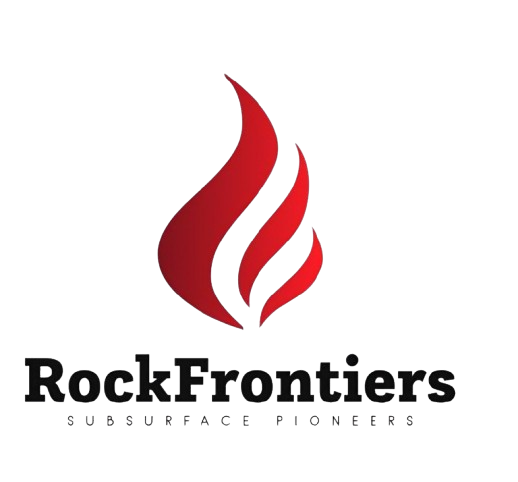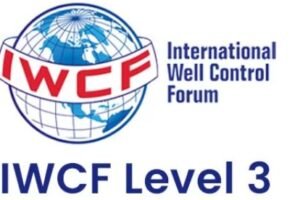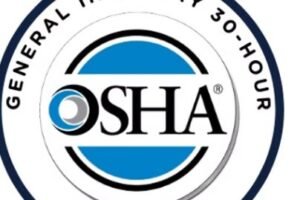🛑 Formation Damage and Mitigation
📘 Course Description This comprehensive course addresses the causes, evaluation, prevention, and remediation of formation damage — a leading cause of reduced well productivity. Participants will learn the mechanisms of damage during drilling, completion, production, and enhanced recovery operations. Strategies …
Overview
📘 Course Description
This comprehensive course addresses the causes, evaluation, prevention, and remediation of formation damage — a leading cause of reduced well productivity. Participants will learn the mechanisms of damage during drilling, completion, production, and enhanced recovery operations. Strategies to design damage-preventing programs, select proper fluids, and apply effective remediation techniques are covered. Real-world examples illustrate how to recognize, diagnose, and mitigate formation damage in various reservoir types.
🎯 Learning Objectives
✅ Identify the types and mechanisms of formation damage
✅ Evaluate formation damage using lab tests and well performance data
✅ Understand the impact of drilling, cementing, perforating, workovers, and EOR operations
✅ Design and select fluids to minimize or prevent damage
✅ Plan and implement chemical and mechanical damage remediation treatments
✅ Analyze field case studies to apply best practices in formation damage management
👥 Who Should Attend
-
Drilling, completion, and production engineers
-
Reservoir engineers
-
Stimulation and workover engineers
-
Field supervisors and operations staff
-
Anyone involved in maximizing well deliverability and productivity
🗂️ Training Format
✅ Comprehensive lectures on theory and field practices
✅ Calculations & lab analysis demonstrations
✅ Interactive workshops and group exercises
✅ Detailed case studies from global operations
✅ Daily open Q&A sessions
📅 Day-by-Day Agenda with Time Breaks
📅 Day 1: Introduction & Fundamentals of Formation Damage
| Time | Topic |
|---|---|
| 08:30 – 09:00 | Welcome, Introductions & Course Objectives |
| 09:00 – 10:30 | Introduction to Formation Damage: Definitions & Concepts |
| 10:30 – 10:45 | ☕ Coffee Break |
| 10:45 – 12:15 | Mechanisms of Damage: Physical, Chemical & Biological |
| 12:15 – 13:15 | 🍽 Lunch |
| 13:15 – 14:45 | Formation Damage During Drilling Operations |
| 14:45 – 15:00 | ☕ Coffee Break |
| 15:00 – 16:30 | Case Study: Drilling-Induced Damage in Sandstone Reservoirs |
📅 Day 2: Damage During Completion & Production
| Time | Topic |
|---|---|
| 08:30 – 10:00 | Perforating Damage Mechanisms & Best Practices |
| 10:00 – 10:15 | ☕ Coffee Break |
| 10:15 – 12:15 | Damage from Completion Fluids & Solids Invasion |
| 12:15 – 13:15 | 🍽 Lunch |
| 13:15 – 14:45 | Production-Related Damage: Scale, Fines Migration, Organic Deposition |
| 14:45 – 15:00 | ☕ Coffee Break |
| 15:00 – 16:30 | Workshop: Identifying Damage Sources from Well Symptoms |
📅 Day 3: Evaluation & Diagnosis of Formation Damage
| Time | Topic |
|---|---|
| 08:30 – 10:00 | Laboratory Methods: Core Flow Tests & Return Permeability |
| 10:00 – 10:15 | ☕ Coffee Break |
| 10:15 – 12:15 | Well Test Analysis for Detecting Damage |
| 12:15 – 13:15 | 🍽 Lunch |
| 13:15 – 14:45 | Production Data Interpretation: Skin Analysis & Damage Quantification |
| 14:45 – 15:00 | ☕ Coffee Break |
| 15:00 – 16:30 | Field Case: Using Pressure Buildup Tests for Damage Assessment |
📅 Day 4: Damage Prevention & Fluid Selection
| Time | Topic |
|---|---|
| 08:30 – 10:00 | Drilling & Completion Fluids Selection to Minimize Damage |
| 10:00 – 10:15 | ☕ Coffee Break |
| 10:15 – 12:15 | Filter Cake Management & Bridging Agents |
| 12:15 – 13:15 | 🍽 Lunch |
| 13:15 – 14:45 | Special Considerations for Carbonates & Naturally Fractured Reservoirs |
| 14:45 – 15:00 | ☕ Coffee Break |
| 15:00 – 16:30 | Workshop: Designing Low-Damage Drilling & Completion Programs |
📅 Day 5: Remediation Treatments & Field Cases
| Time | Topic |
|---|---|
| 08:30 – 10:00 | Chemical Treatments: Acidizing, Solvents & Surfactants |
| 10:00 – 10:15 | ☕ Coffee Break |
| 10:15 – 12:15 | Mechanical & Hydraulic Remediation Techniques |
| 12:15 – 13:15 | 🍽 Lunch |
| 13:15 – 14:45 | Integrated Damage Prevention & Management Programs |
| 14:45 – 15:00 | ☕ Coffee Break |
| 15:00 – 16:30 | Final Review, Field Case Studies, Q&A, Wrap-Up & Certificate Distribution |
📦 Materials Provided
✅ Detailed course manual & lecture slides
✅ Lab analysis guidelines & damage evaluation templates
✅ Design and selection charts for fluids & treatments
✅ Collection of real-world field cases
✅ Certificate of Completion
Target audiences
- Reservoir Engineers, Geologists
You May Like
📘 Underbalanced Drilling (UBD) Techniques and Safety
🎯 Course Description: This intensive 5-day program focuses on Underbalanced Drilling (UBD) – an advanced technique used to drill wells where the hydrostatic pressure of the fluid is intentionally kept below formation pressure. Participants will learn how to implement UBD …
📘 IOSH Managing Safely
🎯 Course Description: A practical, 5-day program designed to help managers and supervisors learn how to manage safety and environmental responsibilities in their teams. Emphasis is placed on identifying risks, measuring performance, and leading safely using internationally recognized good practices. …
📘 IWCF Level 3 Well Control (Surface BOP)
🎯 Course Description: This is an intensive course aimed at drilling / well service personnel needing to gain supervisory competence in well control using surface blow‑out preventers (BOP) under the IWCF standard. It covers theory, hands‑on practice, and assessments for …
Advanced Specialist Petroleum GeoMechanics
📘 Course Description: This elite-level course is tailored for petroleum geomechanics specialists and senior subsurface professionals engaged in complex field development projects. It provides a deep technical dive into stress modeling, anisotropic rock behavior, coupled geomechanical-reservoir simulation, fault/fracture mechanics, and …
📘 OSHA 30‑Hour General Industry Safety and Health
🎯 Course Description: This 5‑day course provides in‐depth knowledge of workplace safety and health in general industry sectors. It covers OSHA regulations, hazard recognition, safety programs, and industry best practices. Participants will gain the expertise needed to maintain a safe …






